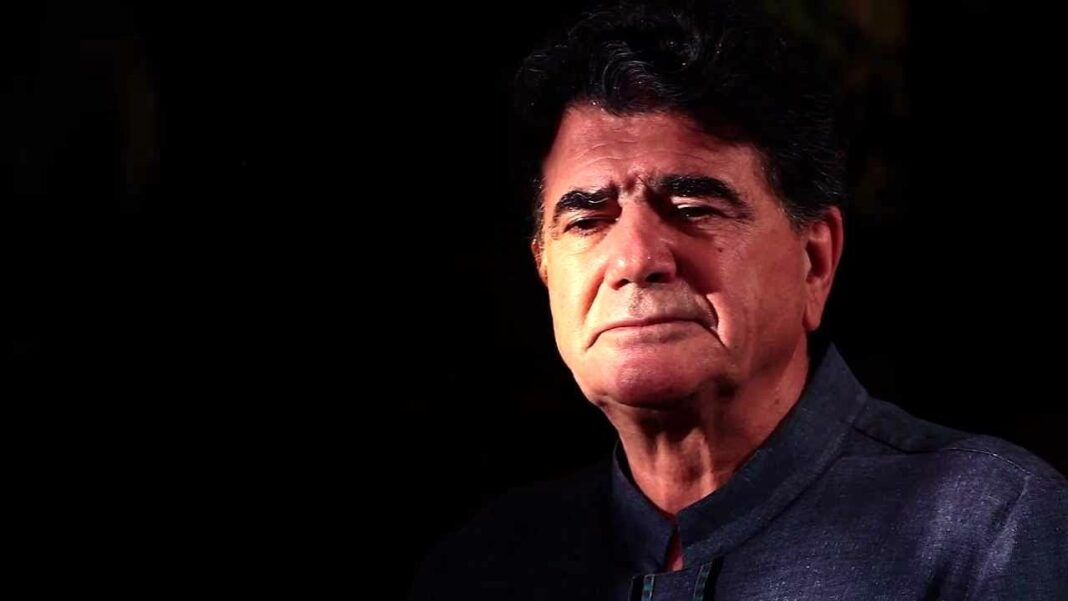Shajarian was widely praised not just for decades of memorable songs he performed at various junctures of Iran’s contemporary history, but for siding with people at difficult times like the 2009 post-election protests.
He was under an unofficial ban up until his death at Tehran’s Jam Hospital.
Born on September 23, 1940, in the northeastern city of Mashhad, Shajarian started recitation of the Holy Quran and singing at the age of five under the supervision of his father.
At the age of 12, he began studying Radif, the Iranian repertoire of classical melodic figures, with some of the prominent maestros of his time, including Ahmad Ebadi, Esmaeil Mehrtash, Abdollah Davami, and Nour-Ali Boroumand.
In 1959, Shajarian officially began his singing career at Radio Khorasan and rose to prominence across the country in the 1960s with his distinct style of singing.
Meanwhile, he continued learning different vocal styles from other virtuosos, including Reza Gholi Mirza Zelli, Fariborz Manouchehri, Ghamar Molouk Vaziri, Eghbal Azar, Taj Isfahani and Gholam Hossein Banan.
Shajarian had cited legendary Iranian tar musician Jalil Shahnaz as the most influential to his development, saying that Shahnaz’s playing style was what he most tried to mimic throughout his artistic life.
To better understand and perform the traditional repertoire, Shajarian also started playing the santour, a percussion-stringed Persian instrument, under the instruction of prominent virtuosos Jalal Akhbari and Faramarz Payvar.
The iconic vocalist continued his career in different spheres, including teaching at Tehran University’s Department of Fine Arts, working at National Radio and Television, conducting research on Iranian music, and creating a repertoire of recordings.
He also collaborated with several other iconic Iranian musicians, including Pariviz Meshkatian, Mohammad Reza Lotfi, Hossein Alizadeh and Keyhan Kalhor, recording numerous historic albums and performing many famous concerts across the world with the ensembles Aref, Sheyda, Ava and Shahnaz.
Collaboration with the ensembles Art and Culture, also known as Payvar, and Aref have been considered as some of the brightest episodes in Shajarian’s singing career.
Shajarian received some of the world’s most prestigious awards for his legacy of art works, including UNESCO’s Golden Picasso Medal (1999), UNESCO’s Mozart Medal (2006), the French National Order of the Legion of Honour (2014), Iran’s National Radio and Television Golden Cup (1977), Iran’s Best Classical Vocalist (2000) and NPR’s 50 Great Voices (2010).
He was also nominated for Grammy Awards in Best World Music for his albums Without You in 2003 and Faryad in 2005.
The inspiring works of Shajarian have put an unforgettable signature on the Iranian life and culture, becoming an inseparable part of the life of Iranians from different social strata.
For decades, Shajarian’s breathtaking performance of Rabbana prayer has been reminiscent of the holy month of Ramadan for Iranians, even though Iran’s state TV has stopped airing it after his support for protesters in 2009.
He selected and combined four different Arabic verses of Quran, each beginning with the phrase “Our Lord,” and sang it based on the Dastgah Segah, one of the seven musical modes in the Persian traditional music.
People listen to Rabbana during every Iftar ceremony when they want to break their fast. The prayer has been interwoven with every big family gathering and other religious festivals in Iran during the month of Ramadan.
Prominent Quran reciters, including the late iconic Egyptian reciter, Ragheb Mustafa Ghalwash, have praised the work as a unique masterpiece in the history of Quran recitation.
